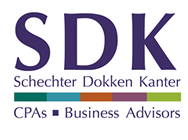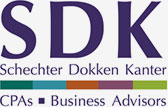Best Practices for Keeping Business and Personal Finances Separate
For business owners, maintaining a clear distinction between personal and business finances is essential. Blurring the lines between the two can lead to accounting issues, tax complications, and even legal risks. Proper financial separation not only protects your personal assets but also ensures compliance with tax laws and simplifies bookkeeping. Here are the best practices to keep your business and personal finances separate.
1. Establish a Separate Business Entity
Choosing the right business structure—such as an LLC, S-Corporation, or C-Corporation—creates a legal distinction between you and your business. This protects your personal assets from business liabilities and provides tax advantages. A sole proprietorship, while simpler, does not offer this separation, making you personally liable for business debts.
2. Open a Dedicated Business Bank Account
A business bank account is a fundamental step in financial separation. It helps you:
- Track income and expenses for accounting and tax purposes
- Establish credibility with clients and vendors
- Avoid commingling funds, which can trigger IRS scrutiny
Ensure that all business revenue is deposited into this account, and use it exclusively for business expenses.
3. Obtain a Business Credit Card
Using a business credit card strictly for company expenses makes it easier to track spending and manage cash flow. It also helps build business credit, which can be beneficial for securing loans or financing in the future. Avoid using personal credit cards for business transactions to prevent record-keeping challenges and potential tax issues.
4. Pay Yourself a Salary
Rather than transferring money from your business account to your personal account at random, set up a structured payroll system where you pay yourself a salary or draw. This ensures consistency, simplifies tax reporting, and keeps business funds separate from personal income.
5. Maintain Accurate Financial Records
Proper bookkeeping is crucial for distinguishing business and personal finances. Use accounting software, like QuickBooks, to track income, expenses, and financial transactions. Keeping clear records ensures compliance with tax regulations and prevents issues if you face an audit.
6. Keep Business Expenses Strictly Business
It’s tempting to pay for personal expenses with business funds, especially if the money is available. However, doing so can:
- Lead to tax penalties and legal consequences
- Make it difficult to track business profitability
- Increase the likelihood of IRS audits
If you accidentally use a business account for a personal expense, reimburse the business and document the transaction properly.
7. Establish a Clear Expense Reimbursement Policy
If you need to cover a business expense with personal funds (e.g., travel costs, office supplies), create a formal reimbursement process. Keep receipts, submit expense reports, and pay yourself back from the business account to maintain accurate records.
8. Work with Financial and Legal Professionals
Working with SDK CPA can provide guidance on structuring your finances properly. A business attorney can also help you understand legal protections related to financial separation, especially if your business is incorporated.
9. Prepare for Tax Season with Proper Documentation
Having separate accounts makes tax preparation much easier. It ensures that business deductions are clearly recorded and prevents personal expenses from being mistakenly claimed as business deductions, which can lead to IRS penalties. Keep organized financial statements, receipts, and records to streamline tax filing.
Maintaining a clear boundary between business and personal finances is crucial for financial stability, tax compliance, and legal protection. By implementing these best practices, you’ll safeguard your personal wealth, improve business cash flow management, and reduce stress during tax season.
If you need assistance with structuring your finances, bookkeeping, or tax planning, the team at SDK is here to help. Contact us today at 612-332-5500 or through email at info@sdkcpa.com for expert guidance.


